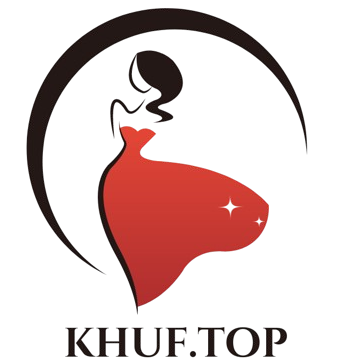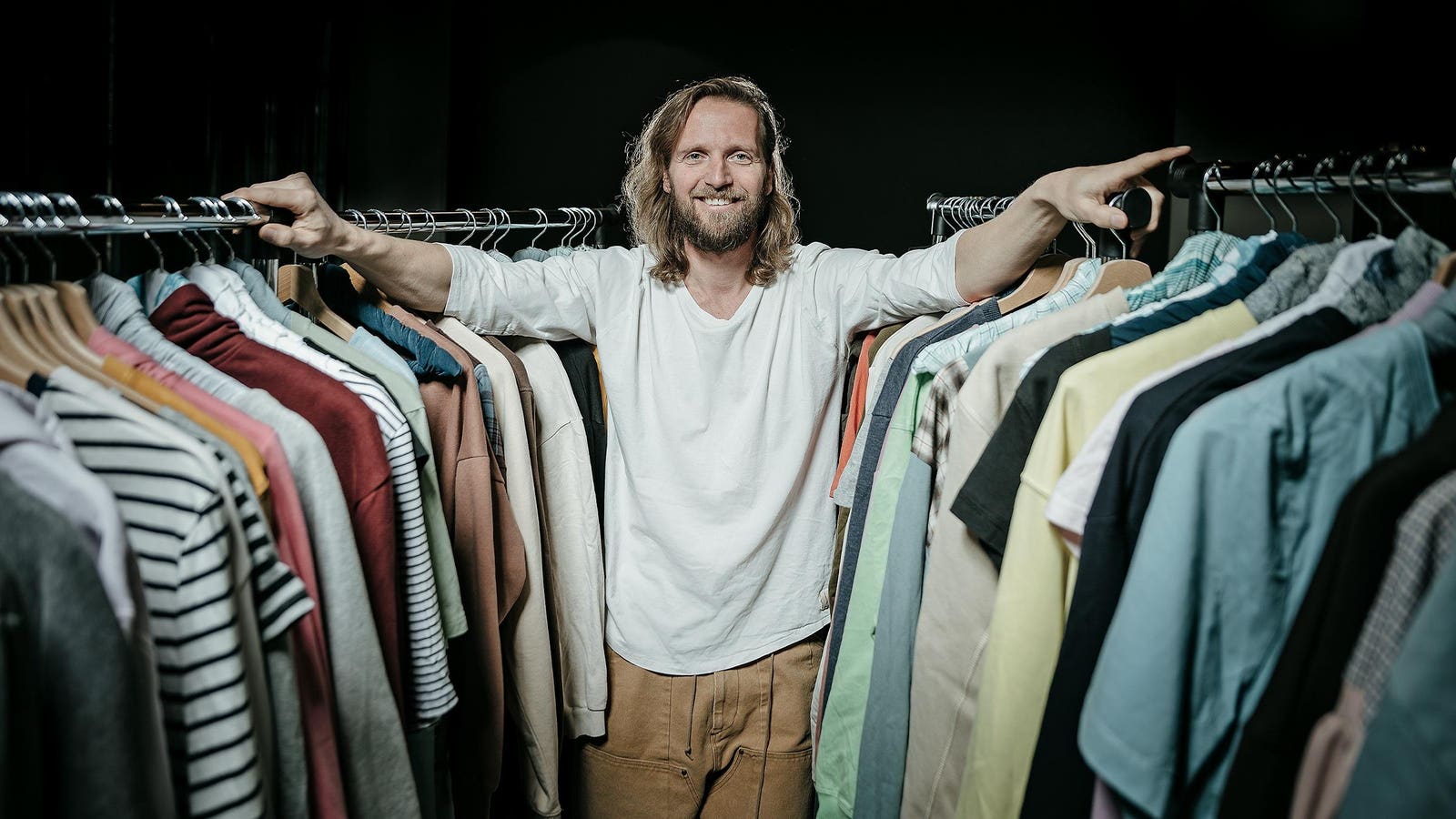Investors have invested billions of dollars in selling websites for loss-making luxury clothes. However, the Baltic nation’s first fairy is now selling handmade clothing for a bargain and is now profitable.
Thomas Plantenga predicted the viability of Vinted in a television commercial. When Plantenga made an $800,000 gamble on French television, the second-hand clothing resale app was losing $1 million per month and having less than a year of cash on hand.

It was May 2016, and Plantenga had just been hired to save the eight-year-old Ukrainian company. Vinted quickly expanded as people from ten different nations used its software to purchase and sell secondhand clothing after its establishment at a university party in 2008. But it was free for users, hardly covering its client expenses with marketing, and an effort in 2014 to screw on a Poshmark-style 20% sales payment resulted in a consumer rebellion. Traffic nearly doubled over. The Netherlands-born Plantenga, who had never been to Lithuania, signed up for a five-week job as a consultant in May 2016. He ended up becoming Vinted’s CEO 18 months afterwards.
“They had the best wedding and engagement rates I’ve ever seen. Next they applied the Poshmark unit and everything collapsed,” says Plantenga, 40.
His prescription was tough medicine: he cut half the staff, cut costs, and cut costs by 75% by closing the majority of Vinted locations outside of Lithuania. In Vilnius, he claims, “I became persona non grata” twice after being kicked out of an Airbnb because the driver was a friend of a person I had lost control of.
His final recommendation to Vinted’s three cofounders—Milda Mitkute, Justas Janauskas and Mantas Mikuckas—was perhaps the most disturbing. There are rumors that I had been hired by the competitors to damage the company, he says, and I was advising them to eliminate all the money on TV.
After a Television campaign in Germany, the app’s strongest market at the time, failed to drink sales, Vinted was running out of options. Its burned-out members were willing to bet it all. “It was better to do something big and bold than have a slow death,” says Mikuckas, 39.
Plantenga and Vinted’s founder anxiously watched the figures come in Vinted’s company, which was a cramped Soviet-era avionics shop with rain pouring down through the roof at the time. They didn’t had to wait longer. Within hours of the European advertising airing, downloading soared.
Seven years later, Vinted is one of Europe’s largest buyer markets, with above $600 million of earnings in 2023. It then counts 100 million consumers globally. Last year, it posted its first annual profit—at least $20 million —distinguishing it from its loss-making American cousins including The RealReal (valued at $360 million ), ThredUp ($200 million) and Poshmark (sold for $1. 2 billion). Vinted became the Baltic nation’s first unicorn in 2019 when it raised $140 million at a $1. 1 billion assessment, and income have since grown tenfold. Deven Parekh, managing director of Insight Partners and past Vinted board part, says that Vinted is the dominant player in this field by a significant margin.
U.S. corporations are most dominant in Goodwill Industries. S. sales of vintage goods, but smaller players hold profitable niches in categories like clothes and sporting goods. Minneapolis-based Winmark companies five companies in “gently used” financial: Plato’s Closet, Play It Once Sports, Once Upon a Child, Model Encore and Music Go Round. Royalties from more than 1,200 licensed shops make up 84% of total profits, which rose 2.3% last year to $83 million. Net income was up 2% to $40 million. Since 2014, quarterly earnings have increased by 32% annually, and Winmark has paid special income in each of its previous four years. Renaissance Technologies, owned by businessman hedge fund manager Jim Simons, has 5 shares. 1% of outstanding stock.
Forbes Dividend Investor, Forbes Premium Income Report, and Forbes Billionaire Investor are edited by John Dobosz.
Vinted’s costs start at 70 percent and are capped at 8%. Vinted keeps costs low by imposing its users’ burdens on the complicated business of sorting, listing, and shipping while Rival platforms like Poshmark start at 20%. “You can add with three taps, and there is no cost for sellers. They have captured the market from a sellers view,” says GlobalData researcher Louise Deglise-Favre.
The site was flooded with stock thanks to Virgin’s bold ad campaigns and soft signup process. Plantenga’s improvements also meant that retailers were usually lured into searching, then buying. Without the burden of buying in an auction, just a few clicks and you’ll receive a fresh coat or handbag. “Thomas ’ insight was that the sellers were the most valuable thing on the platform, and you can’t tax them, ” Mikuckas says.
Another important benefit, especially in urban Europe, is that Vinted offers less expensive deliveries to community stores that charge a small fee. Bodegas across Europe are filled with clothes stuffed in garbage bags with Vinted labels (Plantenga’s no-frills budget doesn’t stretch to free packaging). Young, socially informed customers are uninterested.
Beyond Vinted’s business foes, there’s the grandfather of virtual resale—eBay, which GlobalData estimates sold $11 billion worth of clothing next month. Mercari, a Chinese app, had a profit of $1, but Vinted is less than half that size. 1 billion next time. With a $1, Etsy made an effort to enter the apparel selling market. 6 billion acquisition of London-based Depop in 2021, while Western people Zara and H&M are building out budding in-house selling businesses. Naver, a South Korean research company that purchased the website in October 2022, has then backed Poshmark. Yet Chinese fast-fashion large Shein, which churns out $3 bikini, jumped into the resale game in 2022.
These problems, if anyone, seemed to inspire Plantenga, who sees an Investor in the accounts. Going people would be a crowning accomplishment for the prolific businessman, who built his first business, a boat rental market, in 2010. That company, started with a colleague from the Netherlands’ Eindhoven University of Technology, where he earned a master’s in architecture, was a humble reach, but it landed him on the radar of OLX, the Dutch Craigslist enemy. Plantenga transformed himself into an online platform Mr. Plantenga as brain of emerging markets. Fix-it who parachuted into Argentina, Kenya and Dubai to help create the ads giant’s now $1. 6 billion income. “He’s the best operator I know,” says Fabrice Grinda, OLX’s cofounder and a Vinted investor.
In November 2015, Plantenga and Grinda formed a new Craigslist enemy called Sell It, which they later sold to Spanish rival Wallapop for a small share. When Insight Partners investment Elodie Dupuy needed assistance with a sluggish investment, Vinted, Plantenga had established enough of a status for fixing things by that time. Before Plantenga arrived, the startup had raised $60 million from well-known investors like Insight and Accel after its initial success as a word-of-mouth hit on desktop. After the pair of founder released a mobile apps in 2012 that gained momentum among style movens, vine more exploded. But reputation was never translating into economic success.
After Plantenga’s impact treatment, Vinted’s user figures and listings increased. However, the company was also operating normally. Plantenga, who had stayed longer past his first job with no deal, took the reins as CEO in November 2017 from Vinted’s exhausted founder. “We bonded as a team, but break-even was only the first step,” Mikuckas says. All of the cofounders of Vinted have since ceded their positions with the business.
“The pandemic’s e-commerce boom pitched Vinted into a battle for Britain, Europe’s largest e-commerce market, with Etsy, which had just bought Depop. Etsy would have gotten a taste of how to beat us if we hadn’t given everything we had,” Plantenga says. As a result, Vinted continued to invest money in advertising and fine-tuning delivery options until it finally cracked the U.S. K.
WELL WORN
According to researchers at Oslo Metropolitan University, despite claims that revitalized buyers may be reviving old clothes, the typical garment is left in its place after about four years. A pair of jeans can be changed out nearly as quickly as a pair of socks, while more expensive threads like suits and dresses can typically stay put for a long time before going out of style. How long do your duds typically last?
Plantenga has no plans to let Vinted’s momentum go to waste. With a mathematical formula to predict which nation to target next, Plantega has a formula for Denmark and Finland, which just went live. Vinted wants to hammer out new advertising and streamline shipping to make sure that everyone in its French heartland is as active as they are in each new outpost. “Now it ’s a machine that rolls with countries that are cash-flow-positive financing new countries,” he says.
The United States is one market that doesn’t currently fit his formula. There are a number of competing brands on the market, including eBay, Poshmark, and specialist players like GOAT for sneaker enthusiasts and Rebag for Birkin haters. Oliver Chen, a retail analyst with Cowens, says, “EBay was the OG, but it had so many pain points that all these rivals popped up.” Should they all merge together, the industry’s question is?
That hasn’t stopped Plantenga from trying. Virgin made its first appearance at U.S. S. in 2013. That failed. It tried again in 2021. No go. Plantenga calls the American market “immature.” Earlier this year, he mothballed its Canadian operations. “If I knew what it took, I would get it done,” he says, laughing at what seems to be a frequent question.
With America a hold, Plantenga is determined to move Vinted upstream and capture a share of the luxury resale market. He pushed for the recent $30 million acquisition of rival Rebelle, which has its own designer authentication team to battle counterfeits, in a move that should see Vinted’s average order size and fees skyrocket. Although Vined is a brand that is only available to regular people and wearing regular clothing, Vine says the luxury market has grown significantly faster. “Fashion items costing over 1,000 euros are the fastest-growing segment we have at the moment. ”
You would n’t know it from Plantenga’s own threads. On a tour of Vinted’s Vilnius HQ, he’s sporting a secondhand hole-pocked T-shirt and parachute trousers. One thing missing from the office: racks of clothes. “We are a tech company, not a clothing company, ” he says with a shrug.

